Emergency Response and Mental Health Services
This article explores the critical intersection of emergency response systems and mental health services, highlighting the importance of integrated approaches to support individuals in crisis effectively. In a world where mental health issues are becoming increasingly prevalent, the need for a robust emergency response framework that includes mental health professionals is more crucial than ever. Imagine a scenario where someone is experiencing a severe panic attack or a suicidal crisis; having immediate access to trained professionals can make all the difference between life and death. This integrated approach not only addresses the immediate crisis but also lays the groundwork for ongoing support and recovery.
Emergency services play a vital role in crisis situations, providing immediate assistance and stabilization for individuals experiencing mental health emergencies. Think of them as the first line of defense, swooping in to ensure safety and support during critical moments. But their role extends beyond mere intervention; they are often the bridge between the individual in crisis and the mental health resources they need. By understanding the complexities of mental health issues, emergency responders can offer a more compassionate and effective response. This not only helps in managing the crisis at hand but also fosters trust and openness, encouraging individuals to seek help in the future.
Mental health crises can manifest in various forms, including anxiety attacks, suicidal thoughts, or psychotic episodes. Recognizing these signs is essential for timely intervention and support. For instance, an anxiety attack might leave someone feeling as if they are losing control, while suicidal thoughts can lead to a downward spiral that feels impossible to escape. This is why understanding the nuances of these crises is paramount. When emergency responders are equipped with this knowledge, they can act quickly and effectively, providing the necessary support to stabilize the individual and connect them with appropriate mental health resources.
Identifying the common signs of mental health crises can help responders act swiftly. These signs may include drastic mood changes, withdrawal from social interactions, and expressions of hopelessness. For example, a person who was once outgoing may suddenly become reclusive, indicating that something is amiss. Recognizing these signs is like being a detective in a mystery; the quicker you can piece together the clues, the faster you can intervene. By being vigilant and aware, we can help those in distress find their way back to safety.
Behavioral indicators often signal a mental health crisis, such as aggressive behavior, self-harm, or substance abuse, necessitating immediate attention from trained professionals. These behaviors can serve as red flags, alerting us that someone is in deep distress. For instance, if a usually calm individual suddenly becomes aggressive or starts engaging in self-harm, it's a clear indication that intervention is needed. Understanding these indicators can empower emergency responders to take action before the situation escalates further.
Emotional indicators, including overwhelming sadness, anxiety, or irritability, can also suggest a mental health crisis, prompting the need for intervention and support from emergency responders. Imagine someone who is typically cheerful suddenly becoming withdrawn and irritable; it’s crucial to recognize that these emotional shifts could be warning signs of a deeper issue. By being attuned to these emotional cues, responders can provide the necessary support and resources to help individuals navigate their crises.
Trauma significantly affects mental health, often leading to crises that require emergency intervention. Understanding this connection is crucial for effective response strategies. Trauma can be likened to a storm that leaves destruction in its wake; its effects can linger long after the initial event. Emergency responders must be trained to recognize the signs of trauma and understand how it can exacerbate mental health issues. This awareness not only aids in immediate intervention but also informs the long-term care plans that follow.
Integrated response models combine emergency services with mental health professionals, ensuring comprehensive care for individuals in crisis and promoting better outcomes through collaboration. This approach is akin to a well-oiled machine, where each part works in harmony to achieve a common goal: the well-being of the individual in crisis. By bringing together various agencies and professionals, we can create a safety net that addresses both immediate needs and long-term recovery.
Effective collaboration between emergency services and mental health agencies enhances the quality of care provided, ensuring that individuals receive appropriate support during crises. When these agencies work together, they can share resources, knowledge, and expertise, ultimately leading to better outcomes for those in distress. It’s like having a team of specialists who can tackle a problem from multiple angles, ensuring that every aspect of an individual’s mental health is addressed.
Training first responders in mental health awareness and crisis intervention techniques is essential for improving outcomes and reducing the stigma associated with mental health issues. Imagine a world where first responders are not only equipped to handle physical emergencies but are also trained to understand and empathize with mental health crises. This training can empower them to approach situations with compassion and understanding, making a profound difference in the lives of those they assist.
Community resources play a pivotal role in supporting individuals facing mental health challenges, providing ongoing assistance beyond emergency response and fostering recovery. These resources can include support groups, counseling services, and educational programs aimed at raising awareness about mental health. By creating a supportive community, we can help individuals feel less isolated and more empowered to seek help when needed.
Hotlines and helplines offer immediate support and guidance for individuals in crisis, connecting them with trained professionals who can provide assistance and resources. These services act as a lifeline, offering a safe space for individuals to express their feelings and seek help without judgment. It’s like having a friend on the other end of the line who understands what you’re going through and can offer the support you need.
Accessing local mental health services is crucial for ongoing support and recovery, offering therapy, counseling, and group support for individuals after an emergency response. These services can help individuals process their experiences, develop coping strategies, and build resilience. Think of it as a journey where every step taken towards recovery is supported by professionals who genuinely care about your well-being.
- What should I do if I encounter someone in a mental health crisis?
Stay calm, listen, and encourage them to seek help. If necessary, contact emergency services for assistance.
- How can I support a loved one struggling with mental health issues?
Be there for them, offer to help them find resources, and encourage open communication about their feelings.
- Are there resources available for those who can't afford mental health services?
Yes, many community organizations offer free or low-cost mental health services. Hotlines can also provide guidance on available resources.
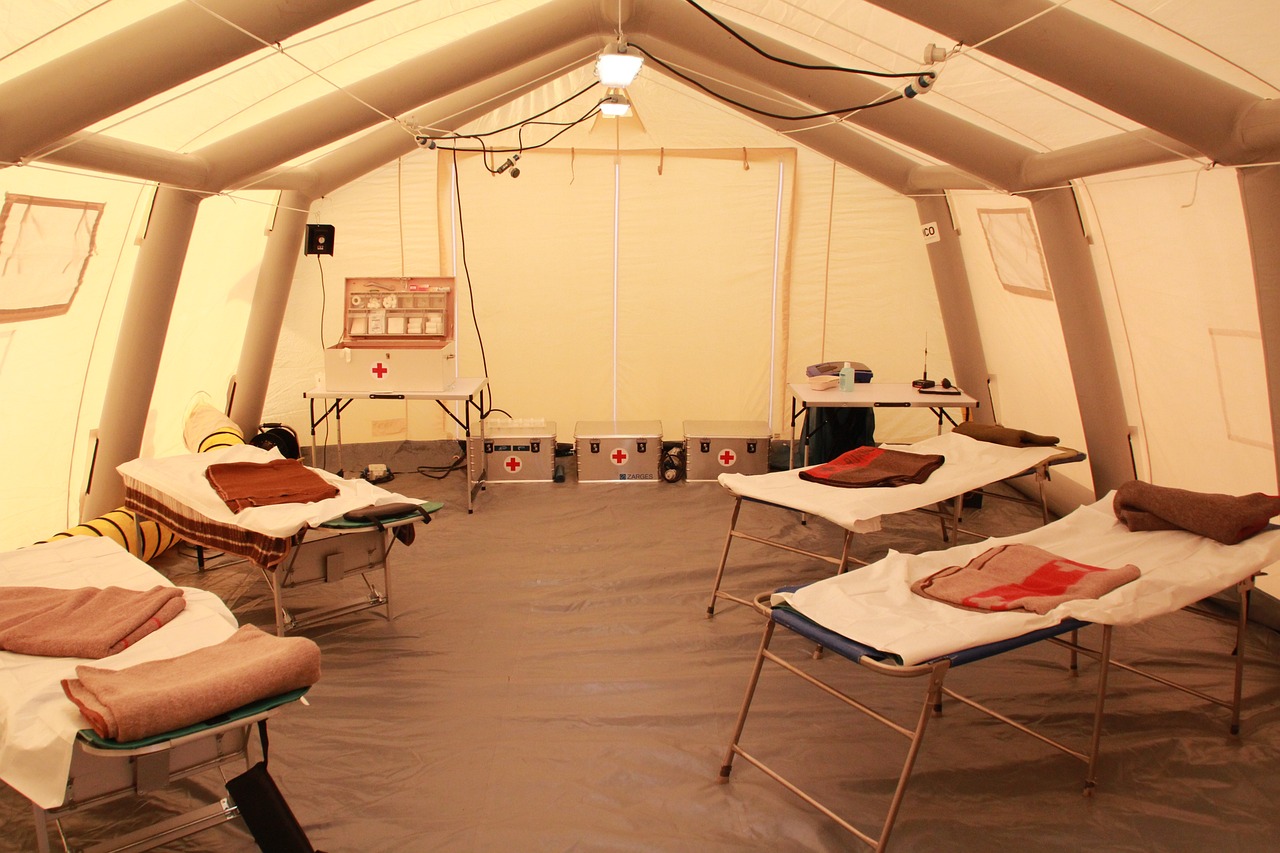
The Role of Emergency Services
This article explores the critical intersection of emergency response systems and mental health services, highlighting the importance of integrated approaches to support individuals in crisis effectively.
Emergency services are often the first line of defense when a crisis strikes, particularly in situations involving mental health emergencies. Think about it: when someone is in distress, whether due to a panic attack, suicidal thoughts, or a severe breakdown, the immediate response can be the difference between life and death. Emergency responders, including police, firefighters, and paramedics, are trained to provide critical assistance and stabilization during these intense moments. Their role extends beyond just physical care; they also provide emotional support, ensuring that individuals feel safe and acknowledged during a time of overwhelming fear and confusion.
In many cases, the effectiveness of emergency services hinges on their ability to recognize the signs of mental health crises. For instance, a person exhibiting erratic behavior may not just be acting out; they could be experiencing a severe emotional breakdown. Recognizing this can lead to a more compassionate and appropriate response. Emergency responders often work under immense pressure, and their ability to assess a situation quickly is crucial. They must be equipped not only with the knowledge of medical procedures but also with an understanding of mental health issues.
Moreover, emergency services are increasingly collaborating with mental health professionals to enhance their response strategies. This collaboration is essential for a few reasons:
- Holistic Care: By integrating mental health professionals into emergency response teams, individuals in crises receive comprehensive care that addresses both their physical and emotional needs.
- Resource Allocation: Proper collaboration ensures that resources are allocated efficiently, reducing the burden on emergency services while providing individuals with the help they truly need.
- Community Trust: When emergency services approach mental health crises with empathy and understanding, it fosters a stronger relationship between the community and the responders.
In summary, the role of emergency services in mental health crises is multifaceted. They are not just responders; they are lifelines, offering immediate assistance and a sense of security during some of the most challenging moments in a person's life. Their training, awareness, and ability to collaborate with mental health professionals are pivotal in ensuring that individuals receive the support they need, paving the way for recovery and resilience.
Mental health crises can manifest in various forms, including anxiety attacks, suicidal thoughts, or psychotic episodes. Recognizing these signs is essential for timely intervention and support.
Identifying the common signs of mental health crises can help responders act swiftly. These signs may include drastic mood changes, withdrawal from social interactions, and expressions of hopelessness.
Behavioral indicators often signal a mental health crisis, such as aggressive behavior, self-harm, or substance abuse, necessitating immediate attention from trained professionals.
Emotional indicators, including overwhelming sadness, anxiety, or irritability, can also suggest a mental health crisis, prompting the need for intervention and support from emergency responders.
Trauma significantly affects mental health, often leading to crises that require emergency intervention. Understanding this connection is crucial for effective response strategies.
Integrated response models combine emergency services with mental health professionals, ensuring comprehensive care for individuals in crisis and promoting better outcomes through collaboration.
Effective collaboration between emergency services and mental health agencies enhances the quality of care provided, ensuring that individuals receive appropriate support during crises.
Training first responders in mental health awareness and crisis intervention techniques is essential for improving outcomes and reducing the stigma associated with mental health issues.
Community resources play a pivotal role in supporting individuals facing mental health challenges, providing ongoing assistance beyond emergency response and fostering recovery.
Hotlines and helplines offer immediate support and guidance for individuals in crisis, connecting them with trained professionals who can provide assistance and resources.
Accessing local mental health services is crucial for ongoing support and recovery, offering therapy, counseling, and group support for individuals after an emergency response.
Q: What should I do if I encounter someone in a mental health crisis?
A: If you see someone in distress, call emergency services or a mental health crisis line. Stay calm, listen, and provide support until help arrives.
Q: How can I prepare for a mental health crisis?
A: Having a plan that includes emergency contacts, coping strategies, and access to local mental health resources can be incredibly helpful.
Q: What is the role of mental health professionals in emergency response?
A: Mental health professionals provide expertise in assessing and managing psychological crises, ensuring that individuals receive appropriate care during emergencies.
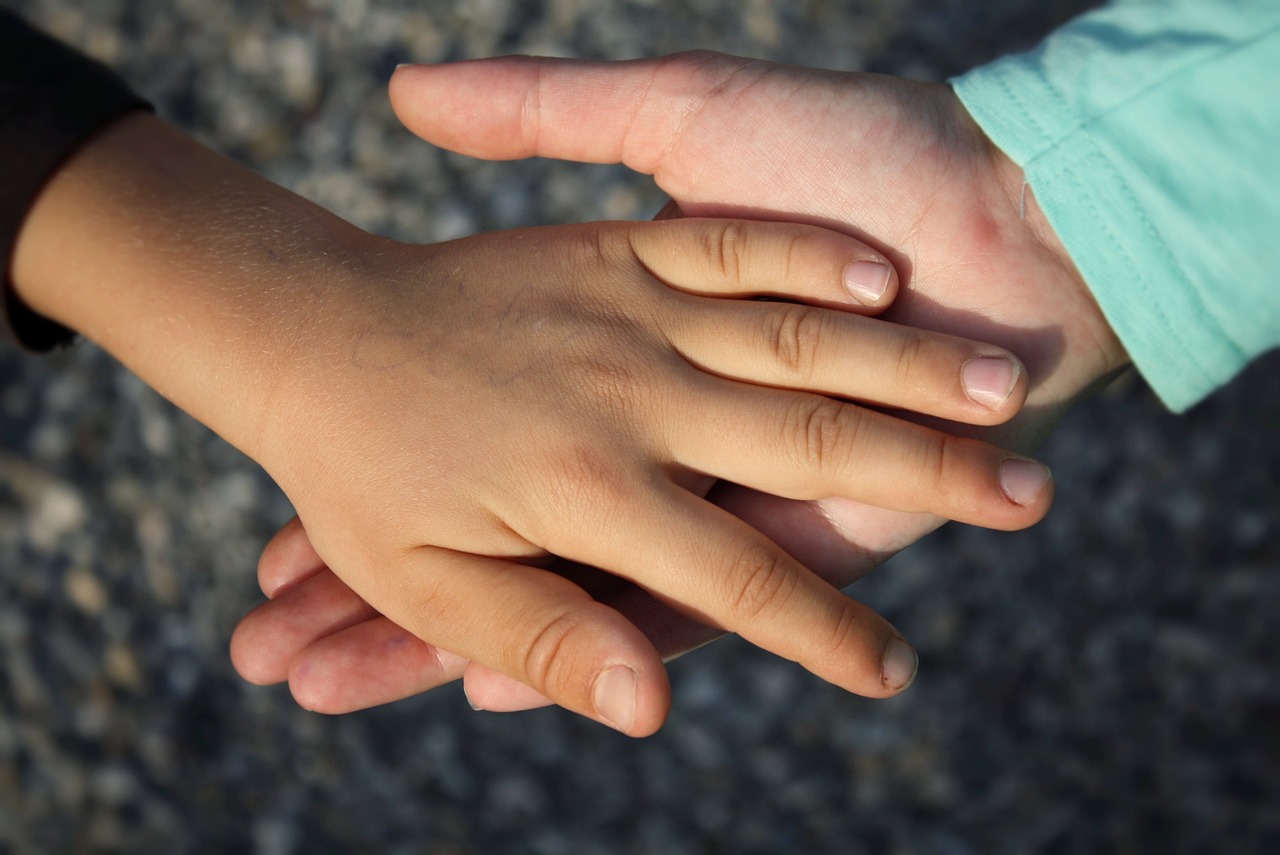
Understanding Mental Health Crises
Mental health crises are complex and multifaceted events that can affect anyone, regardless of age, background, or circumstances. These crises can emerge suddenly, often triggered by overwhelming stressors or traumatic experiences. Understanding what constitutes a mental health crisis is crucial for effective intervention and support. They can manifest in various ways, including anxiety attacks, suicidal thoughts, or even psychotic episodes. Recognizing these signs early can make a significant difference in the outcome for individuals in distress.
To grasp the gravity of mental health crises, it's essential to consider the underlying factors that contribute to these situations. For instance, individuals may experience a crisis due to a culmination of life stressors, such as job loss, relationship breakdowns, or the death of a loved one. Additionally, pre-existing mental health conditions, like depression or bipolar disorder, can exacerbate the likelihood of a crisis occurring. This interplay of factors highlights the importance of a supportive environment and proactive mental health care.
When we talk about mental health crises, it's vital to be aware of the common signs that may indicate someone is in distress. These signs can range from drastic mood changes to withdrawal from social interactions. For example, you might notice a friend who usually enjoys social gatherings suddenly isolating themselves. Such changes can be alarming and should not be overlooked. Other indicators may include expressions of hopelessness or despair, which can serve as red flags for those around them.
Identifying the common signs of mental health crises can help responders act swiftly. Some of the most prevalent indicators include:
- Drastic Mood Changes: Sudden shifts in emotions, such as extreme irritability or deep sadness, can signal a crisis.
- Social Withdrawal: A noticeable pullback from friends, family, and activities can indicate someone is struggling.
- Expressions of Hopelessness: Statements that reflect a lack of hope or purpose can be a cry for help.
Recognizing these signs is the first step in providing help. It’s crucial for friends, family, and even coworkers to be vigilant and compassionate when they notice these behaviors. The earlier someone receives help, the better the chances of a positive outcome.
Behavioral indicators often signal a mental health crisis, necessitating immediate attention from trained professionals. This may include aggressive behavior, self-harm, or substance abuse. These actions are not just cries for help; they can also pose risks to the individual and those around them. It's essential to approach these situations with empathy and urgency, ensuring that the person gets the support they need.
On the emotional side, feelings of overwhelming sadness, anxiety, or irritability can suggest a mental health crisis is imminent. These emotional indicators can create a storm of internal conflict, making it difficult for individuals to cope. Recognizing that someone is struggling emotionally can help friends and family intervene appropriately, guiding them towards professional help.
In summary, understanding mental health crises is not just about recognizing symptoms; it's about fostering a supportive community that encourages open dialogue and timely intervention. By equipping ourselves with knowledge and compassion, we can create a safer environment for those in crisis, ultimately paving the way for healing and recovery.
- What should I do if I see someone in crisis?
Approach them with empathy, listen without judgment, and encourage them to seek professional help.
- How can I support someone after a crisis?
Be there for them, help them access local mental health services, and check in regularly to show your support.
- Are there resources available for mental health crises?
Yes, many hotlines and local mental health services can provide immediate assistance and ongoing support.

Common Signs of Crisis
Recognizing the common signs of a mental health crisis is crucial for timely intervention. It's like being a detective in your own life or someone else's; you need to pick up on the subtle clues that indicate something is amiss. Individuals in crisis may exhibit a range of behaviors and emotional states that can serve as red flags. For instance, drastic mood changes can be a significant indicator. One moment, a person may seem fine, and the next, they are overwhelmed with sadness or anger. This unpredictability can be alarming and is often a sign that they need support.
Another sign to watch for is withdrawal from social interactions. If someone who usually enjoys spending time with friends suddenly isolates themselves, it can be a cry for help. They may feel overwhelmed or believe that no one can understand what they are going through. This isolation can lead to a downward spiral, making it even harder for them to reach out for help. Additionally, expressions of hopelessness, whether through words or actions, can indicate that the individual is struggling with their mental health.
To further illustrate, here are some to keep in mind:
- Drastic mood changes: Sudden shifts in emotions can signal a crisis.
- Withdrawal: Pulling away from friends and family is often a sign of distress.
- Expressions of hopelessness: Statements that convey despair or a lack of purpose can indicate a serious situation.
It’s essential to note that these signs can manifest differently depending on the individual. For example, while one person may become irritable and aggressive, another might retreat into silence. This variability can make it challenging to identify a crisis, but understanding these indicators can empower friends, family, and even bystanders to act. If you notice someone exhibiting these behaviors, don’t hesitate to reach out. Your support could be the lifeline they need.
Ultimately, being aware of the common signs of a mental health crisis is just the first step. The next step is to foster an environment where individuals feel safe to express their feelings and seek help without stigma. Remember, it’s okay to ask questions and show concern; sometimes, just knowing someone cares can make all the difference.
- What should I do if I recognize someone in crisis? - Reach out and express your concern. Encourage them to talk and seek professional help.
- How can I help a friend who is withdrawing? - Stay connected, check in regularly, and offer your support without pressure.
- Are there resources available for immediate assistance? - Yes, hotlines and local mental health services can provide immediate support.

Behavioral Indicators
When it comes to recognizing a mental health crisis, can be some of the most telling signs. These indicators serve as red flags that something isn't quite right and that immediate attention may be necessary. Imagine walking into a room and sensing that the atmosphere has shifted; the same goes for observing changes in someone's behavior. For instance, if a person who is usually outgoing suddenly becomes withdrawn or stops engaging in activities they once loved, it can be a cause for concern.
Some common behavioral indicators that might suggest a mental health crisis include:
- Aggressive behavior: This can manifest as verbal outbursts or physical aggression. When someone feels overwhelmed, they might lash out as a way to express their distress.
- Self-harm: Engaging in self-injurious behavior is a serious sign that someone is struggling. This can include cutting, burning, or any other form of self-inflicted harm.
- Substance abuse: An increase in alcohol or drug use can indicate that a person is trying to cope with their emotional pain, which may lead to a downward spiral.
Recognizing these behavioral changes is crucial, as they can escalate quickly if not addressed. For example, someone who starts isolating themselves may soon feel trapped in their own mind, leading to more severe symptoms. It’s essential for friends, family, and professionals to stay vigilant and offer support. Sometimes, just having someone to talk to can make a world of difference.
Moreover, it’s important to understand that these indicators can vary widely from person to person. What might be a clear sign of distress in one individual could be a normal phase for another. Therefore, observing the context and the individual's baseline behavior is key. If you notice a dramatic shift, it’s wise to approach the situation with empathy and concern rather than judgment.
In summary, behavioral indicators are vital in identifying mental health crises. They serve as a call to action for intervention and support. By being aware of these signs, we can help create a safety net for those in need, guiding them toward the help they deserve.
Q1: What should I do if I notice someone displaying behavioral indicators of a mental health crisis?
A1: If you observe concerning behaviors, it’s essential to approach the person with compassion and concern. Encourage them to talk about what they’re feeling and suggest seeking professional help if necessary.
Q2: Are all behavioral changes indicative of a mental health crisis?
A2: Not necessarily. While some changes can indicate distress, others may simply be temporary fluctuations in mood or behavior. It’s important to consider the context and the individual’s usual behavior.
Q3: How can I support someone who is experiencing a mental health crisis?
A3: Being a good listener, offering your time, and encouraging them to seek professional help are great ways to support someone in crisis. Sometimes, just knowing someone cares can be incredibly reassuring.
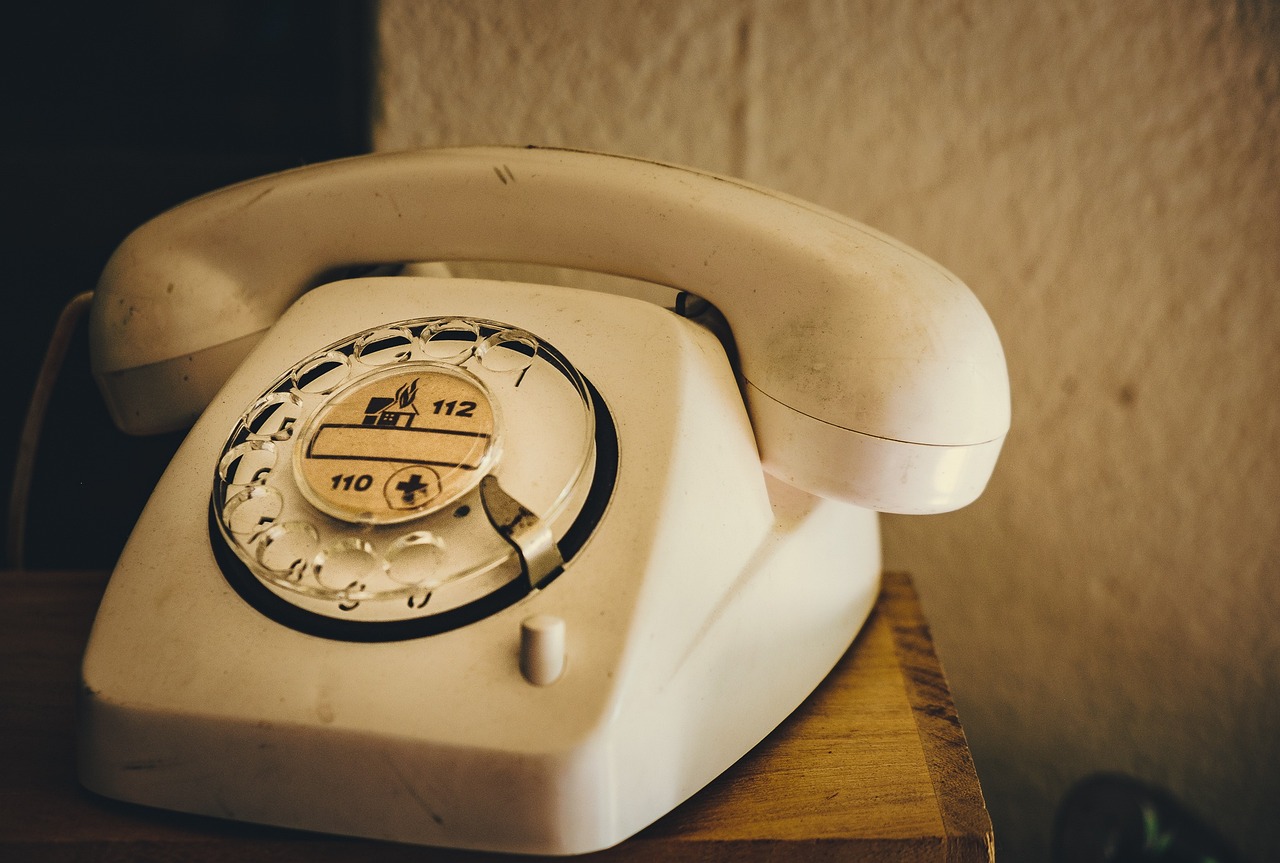
Emotional Indicators
When it comes to identifying a mental health crisis, paying attention to is crucial. These indicators often serve as red flags, signaling that someone may be struggling and in need of immediate support. Imagine a storm brewing in the distance; the clouds may not yet be overhead, but the signs are there. Similarly, emotional indicators can manifest in various ways, and recognizing them early can make all the difference.
One of the most common emotional indicators is overwhelming sadness. This isn't just a fleeting feeling of sadness; it’s a deep, pervasive sense of despair that can leave an individual feeling trapped in a dark tunnel with no light in sight. Often, this sadness can lead to feelings of hopelessness, where the person may believe that things will never improve. Another emotional indicator to watch for is intense anxiety. This can manifest as excessive worry, fear of impending doom, or panic attacks that leave individuals feeling paralyzed. It's as if their mind is racing at a hundred miles an hour, but their body is stuck in place, unable to react.
Irritability is another emotional signal that shouldn't be overlooked. When someone becomes easily frustrated or angered over minor issues, it can indicate an underlying emotional struggle. Think of it like a pressure cooker; if the steam isn't released, it can lead to an explosive situation. This irritability can often be a cry for help, a way of expressing that something deeper is wrong.
Additionally, individuals may exhibit social withdrawal, pulling away from friends and family. This behavior can create a cycle of loneliness and despair, making it even harder for them to reach out for help. It's essential to recognize that these emotional indicators are not just signs of a temporary mood swing but rather signals that a person is in distress and may require immediate intervention.
In summary, being aware of emotional indicators such as overwhelming sadness, intense anxiety, irritability, and social withdrawal can empower friends, family, and first responders to act swiftly and compassionately. In the midst of a crisis, these signs can guide us toward providing the right support, ensuring that individuals receive the help they need before the storm escalates.
- What should I do if I notice someone displaying emotional indicators?
If you observe someone showing signs of emotional distress, it's important to approach them with empathy. Offer a listening ear and encourage them to seek professional help. - How can I support someone experiencing a mental health crisis?
Be present, listen without judgment, and help them access resources such as hotlines or local mental health services. - Are emotional indicators the same for everyone?
No, emotional indicators can vary greatly among individuals. It's essential to consider personal circumstances and past experiences. - When should I seek professional help for myself or someone else?
If emotional distress is persistent, overwhelming, or leads to thoughts of self-harm or suicide, it's crucial to seek help immediately.

Impact of Trauma on Mental Health
Trauma can be a silent storm, wreaking havoc on an individual's mental health long after the initial event has passed. When we think of trauma, we often picture dramatic incidents—car accidents, natural disasters, or violent assaults. However, trauma can also arise from less visible experiences, such as emotional abuse, neglect, or the loss of a loved one. The impact of trauma on mental health is profound, often leading to a cascade of psychological challenges that can manifest in various ways.
One of the most significant effects of trauma is the development of disorders such as Post-Traumatic Stress Disorder (PTSD). Individuals with PTSD may experience flashbacks, nightmares, and severe anxiety, making it difficult to function in daily life. The emotional scars from traumatic experiences can also lead to other mental health issues, including depression and anxiety disorders. This can create a vicious cycle where the individual feels trapped, unable to escape the mental turmoil that trauma has inflicted.
Moreover, trauma can alter the brain's chemistry and structure. Research has shown that traumatic experiences can lead to changes in the amygdala, the part of the brain responsible for processing emotions, and the hippocampus, which is crucial for memory formation. This can result in heightened emotional responses and difficulties in recalling memories, making it challenging for individuals to cope with their feelings. The brain's ability to regulate emotions can become compromised, leading to increased irritability, mood swings, and even substance abuse as a coping mechanism.
Understanding the impact of trauma on mental health is essential for both emergency responders and mental health professionals. Recognizing that an individual's crisis may stem from unresolved trauma allows for a more compassionate and effective response. Here are some common emotional and behavioral indicators that may arise from trauma:
- Emotional Numbness: A person may feel disconnected from their emotions or experience a sense of emptiness.
- Hypervigilance: Individuals may become overly alert and easily startled, as if they are constantly on guard.
- Social Withdrawal: Trauma can lead individuals to isolate themselves from friends and family, further exacerbating feelings of loneliness.
Additionally, trauma can have a ripple effect on relationships. Individuals may struggle to connect with others, fearing vulnerability or rejection. This can lead to a cycle of isolation and despair, making it even more critical for emergency services to be equipped with the knowledge and skills to address these issues. By incorporating trauma-informed care into emergency response protocols, responders can better support individuals in crisis, fostering a sense of safety and understanding.
In conclusion, the impact of trauma on mental health is a complex and multifaceted issue that requires a nuanced approach. By acknowledging the profound effects of trauma, we can begin to create more effective strategies for intervention and support, ultimately leading to better outcomes for individuals facing mental health crises.
- What is trauma-informed care? Trauma-informed care is an approach that recognizes the prevalence of trauma and its impact on individuals. It emphasizes creating a safe environment and understanding the individual's experience.
- How can I help someone who has experienced trauma? Listening without judgment, offering support, and encouraging them to seek professional help can be beneficial. It's important to respect their boundaries and allow them to share at their own pace.
- Are there specific therapies for trauma? Yes, therapies such as Cognitive Behavioral Therapy (CBT), Eye Movement Desensitization and Reprocessing (EMDR), and trauma-focused therapy are effective in treating trauma-related issues.
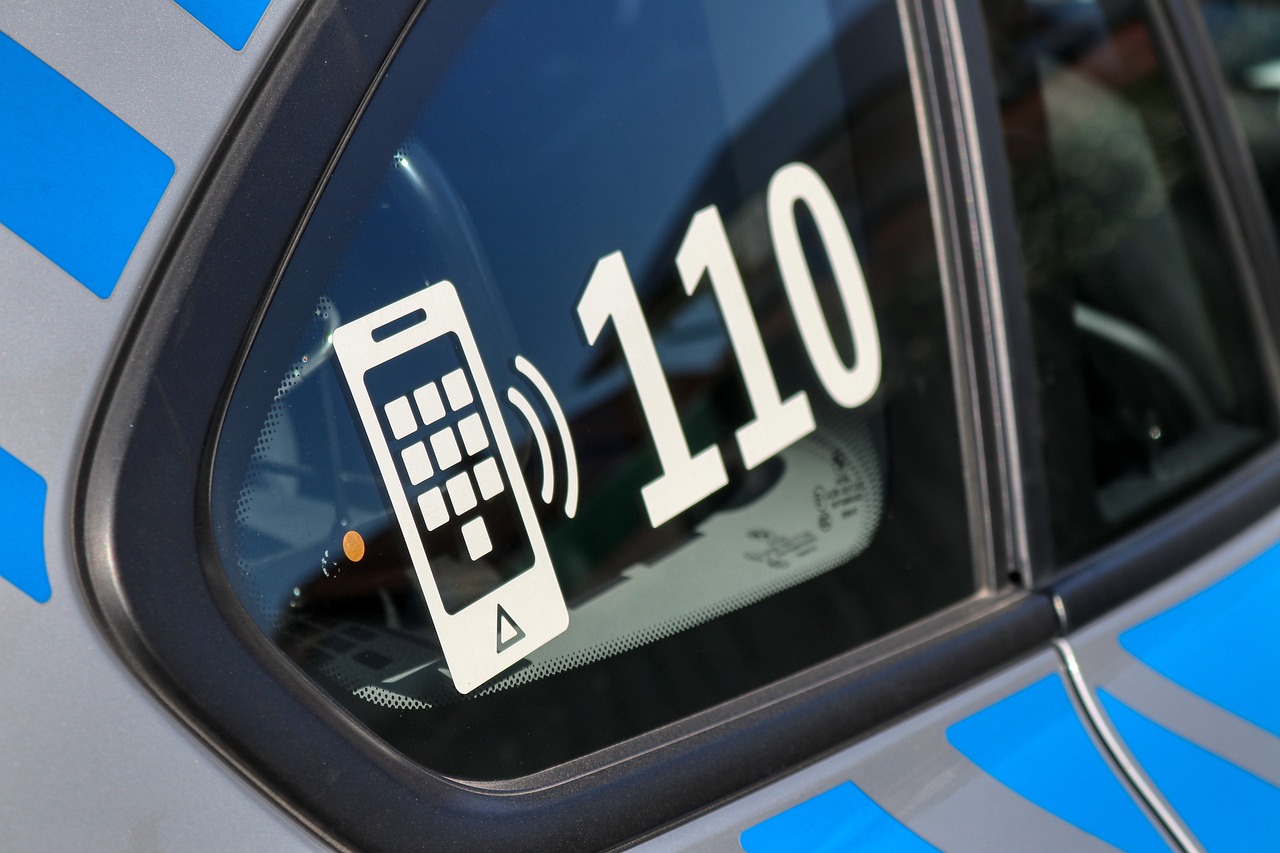
Integrated Response Models
In the realm of crisis management, are becoming increasingly essential. These models merge the expertise of emergency services with mental health professionals, creating a holistic approach to care that is both timely and effective. Imagine a well-coordinated orchestra where each musician plays their part to create a beautiful symphony; this is how integrated response systems function. By working together, these professionals ensure that individuals in crisis receive the comprehensive support they need, rather than being shuffled between disparate services.
One of the key advantages of integrated response models is the improved communication between various agencies. When emergency responders are trained to recognize mental health issues, they can quickly relay vital information to mental health professionals. This not only speeds up the intervention process but also enhances the quality of care. For instance, if a paramedic arrives on the scene and notices signs of a mental health crisis, they can immediately contact a mental health specialist who can provide guidance on how to proceed. This seamless communication can be the difference between life and death.
Furthermore, integrated models often lead to better resource allocation. By pooling resources and expertise, agencies can create a more efficient system that reduces redundancy and maximizes the impact of their efforts. For example, some communities have established crisis intervention teams that include both police officers and mental health professionals. This collaboration allows for a more nuanced approach to crisis situations, where the mental health expert can de-escalate a situation that might otherwise lead to unnecessary arrests or hospitalizations.
In addition, integrated response models foster a culture of understanding and empathy towards mental health issues. When first responders receive training on mental health awareness, they become more sensitive to the challenges faced by individuals in crisis. This shift in perspective can significantly reduce the stigma surrounding mental health, encouraging more people to seek help when they need it. It’s like turning on a light in a dark room; suddenly, the shadows are gone, and the path to recovery becomes clearer.
Moreover, these integrated approaches can also provide ongoing support beyond the immediate crisis. By establishing connections with local mental health services, individuals can receive follow-up care that is crucial for long-term recovery. This continuity of care is vital, as many individuals who experience a crisis may need additional support to navigate their mental health journey. In essence, integrated response models do not just address the immediate needs; they pave the way for sustained recovery and well-being.
Overall, the integration of emergency services with mental health professionals is not just a trend; it’s a necessary evolution in how we respond to crises. By creating a more cohesive system, we can ensure that individuals in distress receive the comprehensive care they deserve, ultimately leading to better outcomes for everyone involved.
- What are integrated response models? Integrated response models combine the efforts of emergency services and mental health professionals to provide comprehensive support during crises.
- How do these models improve crisis intervention? They enhance communication and collaboration between agencies, ensuring timely and effective responses to mental health emergencies.
- What is the role of training in integrated models? Training first responders in mental health awareness enables them to recognize and address mental health issues more effectively.
- Can integrated response models reduce stigma? Yes, increased understanding and empathy towards mental health issues can help reduce stigma and encourage individuals to seek help.
- Why is follow-up care important? Follow-up care ensures that individuals receive ongoing support, which is crucial for long-term recovery after a mental health crisis.
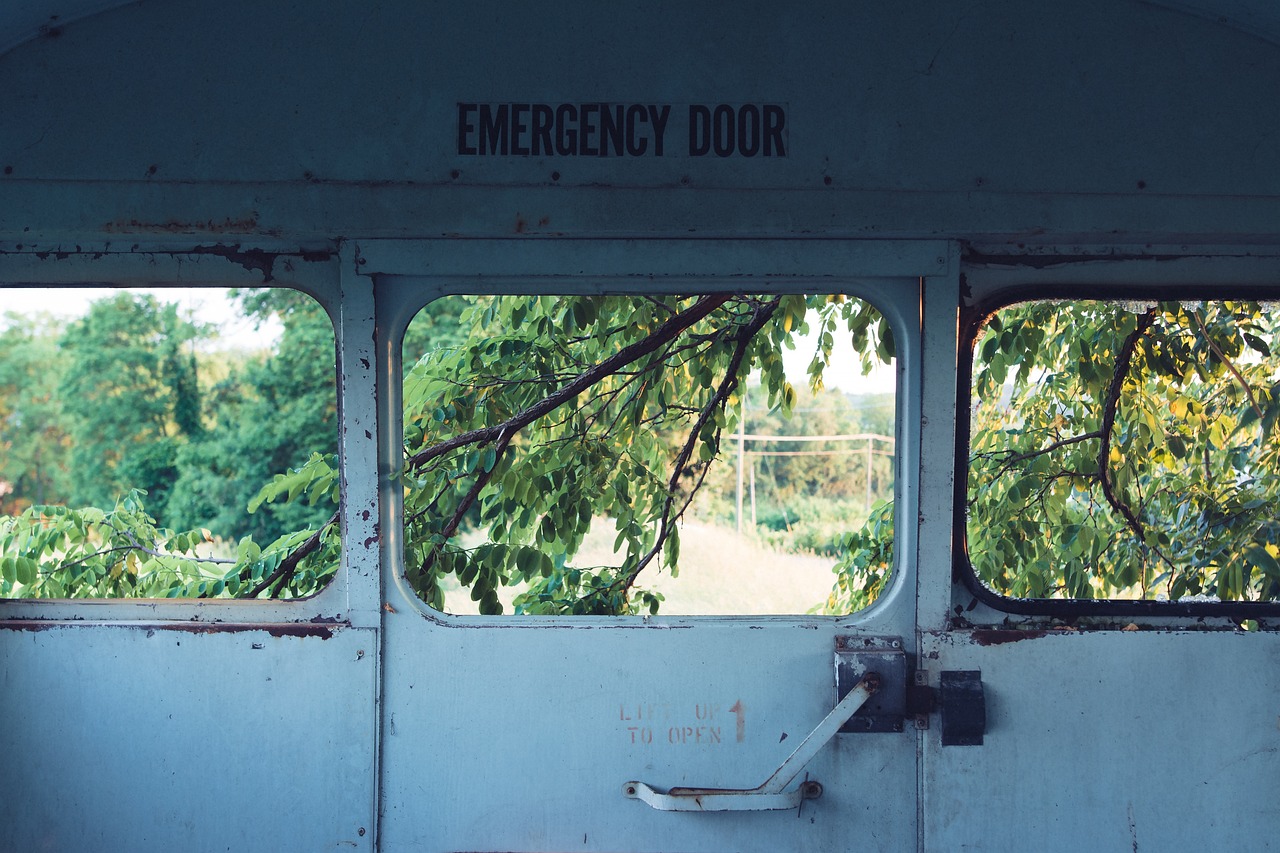
Collaboration Between Agencies
The collaboration between emergency services and mental health agencies is not just beneficial; it is essential. Imagine a scenario where a person experiencing a mental health crisis calls for help. If the emergency responders and mental health professionals work in silos, the individual may not receive the comprehensive care they desperately need. However, when these agencies collaborate, the outcome can be significantly improved. This integrated approach ensures that the person in crisis receives immediate medical attention while also being connected to mental health support, paving the way for a smoother recovery process.
One of the key benefits of collaboration is the sharing of resources and expertise. Emergency responders are trained to handle physical crises, but they may not have the specialized training necessary to deal with mental health issues. Conversely, mental health professionals possess the skills to assess and treat psychological conditions but may not be equipped to handle the immediate safety concerns that arise during a crisis. By working together, these professionals can create a comprehensive response strategy that addresses both the physical and mental health needs of individuals in crisis.
Furthermore, collaborative efforts can lead to the development of standardized protocols and training programs. For instance, regular joint training sessions can help first responders gain insights into mental health issues and crisis intervention techniques. This training not only enhances their skills but also fosters a culture of understanding and empathy towards those experiencing mental health crises. The result? A more compassionate and effective response that can make all the difference in someone's life.
To illustrate the importance of this collaboration, consider the following table that outlines the roles of each agency in a crisis situation:
| Agency | Role |
|---|---|
| Emergency Services | Provide immediate medical assistance and ensure the safety of the individual and others. |
| Mental Health Professionals | Assess the mental health needs of the individual and provide appropriate interventions. |
| Community Support Services | Offer ongoing support and resources to the individual after the immediate crisis has passed. |
In conclusion, the collaboration between emergency services and mental health agencies is a critical component in effectively addressing mental health crises. By working together, these organizations can provide a holistic approach to care, ensuring that individuals receive the support they need during some of the most challenging moments of their lives. This collaboration not only improves immediate responses but also fosters long-term recovery and well-being for individuals facing mental health challenges.
- What is the importance of collaboration between emergency services and mental health agencies?
Collaboration ensures that individuals in crisis receive comprehensive care that addresses both their physical and mental health needs. - How can first responders be trained in mental health awareness?
Regular training sessions and workshops can be organized to educate first responders on mental health issues and crisis intervention techniques. - What resources are available for individuals in crisis?
Hotlines, local mental health services, and community support groups are essential resources for individuals facing mental health challenges.

Training for First Responders
Training for first responders is an essential component in the broader framework of emergency response, especially when it comes to handling mental health crises. These brave individuals are often the first point of contact for someone in distress, and their ability to effectively assess and manage these situations can significantly impact the outcome for the individual in crisis. To equip first responders with the necessary skills, training programs should focus on a variety of critical areas.
First and foremost, mental health awareness is a key aspect of the training. Responders need to understand the various mental health conditions they might encounter, from anxiety disorders to severe psychosis. This knowledge helps them approach each situation with empathy rather than judgment. For example, recognizing that a person exhibiting aggressive behavior may be experiencing a panic attack rather than being intentionally combative can change the dynamics of the interaction significantly.
Additionally, crisis intervention techniques are a vital part of the curriculum. These techniques include de-escalation strategies that can help calm a distressed individual, allowing for a more productive dialogue. Training can involve role-playing scenarios where responders practice these techniques in a controlled environment, simulating real-life situations they may face. This hands-on approach not only builds confidence but also improves decision-making skills under pressure.
Furthermore, it’s crucial to address the stigma surrounding mental health within emergency services. Many first responders come from backgrounds where mental toughness is emphasized, which can lead to reluctance in discussing mental health issues. Training should include discussions about the importance of mental health for responders themselves, highlighting that seeking help is a strength, not a weakness. This cultural shift can ultimately lead to better outcomes for both responders and those they serve.
Moreover, ongoing training and refreshers should be part of the standard protocol. Mental health is a constantly evolving field, with new research and techniques emerging regularly. Keeping first responders updated on these developments ensures they are always prepared to handle crises effectively. Collaboration with mental health professionals during training sessions can also provide invaluable insights and foster a deeper understanding of the complexities involved in mental health crises.
In summary, the training of first responders is not just about providing immediate assistance; it's about fostering a holistic understanding of mental health issues and developing the skills necessary to respond effectively. By integrating mental health awareness, crisis intervention techniques, and ongoing education into their training, we can ensure that first responders are not only saving lives but also supporting individuals in their most vulnerable moments.
- What kind of training do first responders receive for mental health crises?
First responders typically undergo training in mental health awareness, crisis intervention techniques, and de-escalation strategies to better handle individuals in distress. - How can first responders reduce stigma around mental health?
By engaging in open discussions about mental health, emphasizing its importance, and encouraging a culture of support within their teams, first responders can help reduce stigma. - Are there ongoing training opportunities for first responders?
Yes, ongoing training and refresher courses are essential to keep first responders updated on the latest practices and research in mental health.

Community Resources and Support
When it comes to mental health, the importance of community resources cannot be overstated. These resources serve as a lifeline for individuals facing mental health challenges, providing essential support and guidance that extends far beyond the immediate response of emergency services. Imagine a safety net woven from various threads of support, each one representing a different resource available to those in need. From hotlines to local mental health services, these resources create a robust framework that fosters healing and recovery.
One of the most vital aspects of community support is the availability of hotlines and helplines. These services offer immediate assistance and are often staffed by trained professionals who can provide crucial guidance in times of crisis. Whether someone is experiencing overwhelming anxiety, suicidal thoughts, or simply needs someone to talk to, hotlines can be a first step toward recovery. For instance, the National Suicide Prevention Lifeline is a well-known resource that provides 24/7 support to individuals in distress. This immediate access to help can make all the difference in a person’s life.
In addition to hotlines, local mental health services play a significant role in ongoing support. After the initial emergency response, individuals often require therapy, counseling, or group support to navigate their mental health journey. Local mental health clinics and community organizations offer a variety of services tailored to meet individual needs. This could include anything from one-on-one therapy sessions to support groups that foster a sense of belonging and understanding among peers. Such resources not only aid in recovery but also help to reduce stigma around mental health issues.
Moreover, community resources often provide educational programs aimed at increasing awareness and understanding of mental health. These programs can empower individuals and families with knowledge about mental health conditions, coping strategies, and when to seek help. By fostering a culture of openness and support, communities can create an environment where individuals feel safe to discuss their mental health challenges without fear of judgment.
To visualize the array of community resources available, consider the following table that outlines some common types of support services:
| Type of Resource | Description | Contact Information |
|---|---|---|
| Hotlines | 24/7 support for immediate mental health crises. | National Suicide Prevention Lifeline: 1-800-273-TALK |
| Local Mental Health Clinics | Ongoing therapy and counseling services. | Visit your local health department for listings. |
| Support Groups | Peer-led groups for shared experiences and recovery. | Find local groups through community centers. |
In conclusion, community resources are essential in supporting individuals facing mental health challenges. They provide not just immediate assistance but also long-term support that fosters recovery and resilience. By leveraging these resources, individuals can navigate their mental health journeys more effectively and with greater confidence. Remember, reaching out for help is a sign of strength, and the community is here to support you every step of the way.
What should I do if I or someone I know is in a mental health crisis?
If you or someone is in immediate danger, call emergency services or a crisis hotline for immediate support. It's crucial to seek help from trained professionals.
How can I find local mental health resources?
You can search online for local mental health clinics or contact your health department for recommendations. Many communities have directories of available services.
Are hotlines really effective?
Yes! Hotlines provide immediate, confidential support and can help individuals feel less isolated during a crisis. They can also guide you to further resources.
What types of support groups are available?
Support groups can vary widely, including those for specific mental health conditions, general wellness, or grief support. Many are peer-led and focus on shared experiences.

Hotlines and Helplines
In moments of crisis, when the world feels overwhelming and support seems just out of reach, hotlines and helplines serve as a beacon of hope. These services are designed to provide immediate assistance, ensuring that individuals in distress can connect with trained professionals who understand their struggles. Imagine being in a dark tunnel, feeling lost and alone, and suddenly, a voice on the other end of the line illuminates your path. That's the power of hotlines and helplines.
Hotlines are often available 24/7, offering a lifeline to those experiencing mental health crises, whether it’s anxiety, depression, or suicidal thoughts. The anonymity and confidentiality that these services provide can make it easier for individuals to reach out for help, especially when they might feel ashamed or afraid to talk to someone face-to-face. This is particularly important because many people struggle with the stigma surrounding mental health issues, which can prevent them from seeking the help they need.
Some of the most prominent hotlines include:
- National Suicide Prevention Lifeline: A free, 24-hour service that can provide support, information, and resources for individuals in distress.
- Crisis Text Line: A text-based service that connects individuals in crisis with trained crisis counselors via SMS.
- Substance Abuse and Mental Health Services Administration (SAMHSA) National Helpline: A confidential, free, 24/7 information service for individuals facing mental health and substance use disorders.
These services not only offer immediate support but also guide individuals towards long-term resources and treatment options. For instance, when someone calls a hotline, the trained professional can help them assess their situation and provide coping strategies to manage their immediate feelings. They can also refer callers to local mental health services, ensuring that individuals have access to ongoing support.
Moreover, hotlines and helplines often provide a wealth of information on mental health topics, from coping mechanisms to understanding mental health conditions. They can serve as an educational tool, helping individuals and their loved ones better understand the challenges they face. This knowledge can empower individuals to take proactive steps towards their mental well-being.
In summary, hotlines and helplines are invaluable resources in the realm of mental health. They offer immediate support, guidance, and a sense of connection when individuals need it most. By fostering awareness and encouraging people to reach out, we can help break the stigma surrounding mental health and create a more supportive environment for those in need.
Q: What should I expect when I call a hotline?
A: When you call a hotline, you can expect to speak with a trained professional who will listen to your concerns, provide support, and help you find resources tailored to your needs.
Q: Are hotlines confidential?
A: Yes, most hotlines prioritize confidentiality and anonymity, allowing you to discuss your situation without fear of judgment.
Q: Can hotlines help with issues other than suicide?
A: Absolutely! Hotlines can assist with a variety of mental health issues, including anxiety, depression, substance abuse, and more.
Q: How do I find a hotline that suits my needs?
A: You can search online for hotlines specific to your situation or reach out to local mental health organizations for recommendations.

Local Mental Health Services
Accessing is crucial for individuals seeking ongoing support and recovery after experiencing a mental health crisis. These services provide a lifeline, offering various therapeutic options tailored to meet the unique needs of each individual. Think of local mental health services as a safety net, catching those who might otherwise fall through the cracks after an emergency response. They are designed not only to address immediate concerns but also to foster long-term healing and resilience.
Local mental health services typically include a range of options such as individual therapy, group counseling, and psychiatric care. Each type plays a significant role in helping individuals navigate their mental health challenges. For example, individual therapy allows for personalized attention and tailored strategies to cope with specific issues, while group counseling offers a sense of community and shared experience, which can be incredibly beneficial for those feeling isolated in their struggles.
Moreover, many communities provide specialized programs that cater to specific populations, such as veterans, children, or individuals dealing with substance abuse. These programs often integrate various treatment modalities, including cognitive behavioral therapy (CBT), mindfulness practices, and medication management, ensuring a holistic approach to mental health care. This integration is vital, as it addresses not only the symptoms but also the underlying causes of mental health issues.
To better understand the types of local mental health services available, here’s a brief overview:
| Service Type | Description |
|---|---|
| Individual Therapy | One-on-one sessions with a licensed therapist focusing on personal challenges and goals. |
| Group Counseling | Facilitated sessions where individuals share experiences and support each other in a group setting. |
| Psychiatric Care | Medical support, including medication management, provided by psychiatrists or nurse practitioners. |
| Community Support Programs | Programs tailored to specific groups, offering specialized resources and support. |
In addition to these services, many local mental health organizations offer educational resources and workshops aimed at increasing awareness and understanding of mental health issues. These initiatives can empower individuals and families, enabling them to recognize signs of distress and seek help proactively. By fostering a culture of openness and support, communities can significantly reduce the stigma surrounding mental health challenges.
It's essential to remember that seeking help is a sign of strength, not weakness. Local mental health services are equipped to provide the necessary support, guidance, and resources to help individuals regain control over their mental health. Whether you’re looking for immediate assistance or long-term therapy, these services are a crucial component of the mental health landscape, ensuring that no one has to navigate their challenges alone.
- What types of local mental health services are available? Local services may include individual therapy, group counseling, and psychiatric care.
- How can I find local mental health services? You can search online, contact local health departments, or ask for referrals from healthcare providers.
- Are mental health services confidential? Yes, most mental health services prioritize confidentiality to ensure a safe environment for individuals seeking help.
- What should I expect during my first visit to a mental health service? Expect an initial assessment where you'll discuss your concerns and goals with a mental health professional.
Frequently Asked Questions
- What should I do if I encounter someone in a mental health crisis?
If you encounter someone in a mental health crisis, the first step is to ensure their safety and the safety of those around them. Approach them calmly, listen without judgment, and offer support. If the situation seems severe, don't hesitate to call emergency services or a mental health crisis hotline for professional assistance.
- How can emergency services help during a mental health crisis?
Emergency services are trained to provide immediate assistance during mental health crises. They can assess the situation, ensure safety, and stabilize the individual. They often work alongside mental health professionals to provide the right care and connect individuals with ongoing support services.
- What are some common signs that someone is experiencing a mental health crisis?
Common signs include drastic mood changes, withdrawal from social interactions, expressions of hopelessness, and behavioral changes like aggression or self-harm. Recognizing these signs can lead to timely intervention and support.
- How does trauma impact mental health?
Trauma can have a profound effect on mental health, often leading to crises that require immediate intervention. It can trigger anxiety, depression, and other mental health issues, making it essential to understand the connection between trauma and mental health for effective crisis response.
- What is an integrated response model?
An integrated response model combines the efforts of emergency services and mental health professionals. This collaboration ensures comprehensive care for individuals in crisis, promoting better outcomes through coordinated support and resources.
- Why is training for first responders in mental health important?
Training first responders in mental health awareness and crisis intervention techniques is crucial. It helps them recognize mental health issues, reduces stigma, and improves outcomes for individuals in crisis by ensuring they receive appropriate care and support.
- What community resources are available for mental health support?
Community resources include hotlines, helplines, and local mental health services. These resources provide immediate support, ongoing therapy, counseling, and group support, helping individuals navigate their mental health challenges beyond emergency responses.
- How can hotlines and helplines assist individuals in crisis?
Hotlines and helplines offer immediate, confidential support and guidance for individuals in crisis. They connect callers with trained professionals who can provide assistance, resources, and information on next steps for recovery and support.
- What types of ongoing support can local mental health services provide?
Local mental health services offer a range of ongoing support options, including therapy, counseling, and support groups. These services are essential for individuals recovering from a crisis, providing them with tools and resources to manage their mental health effectively.



















